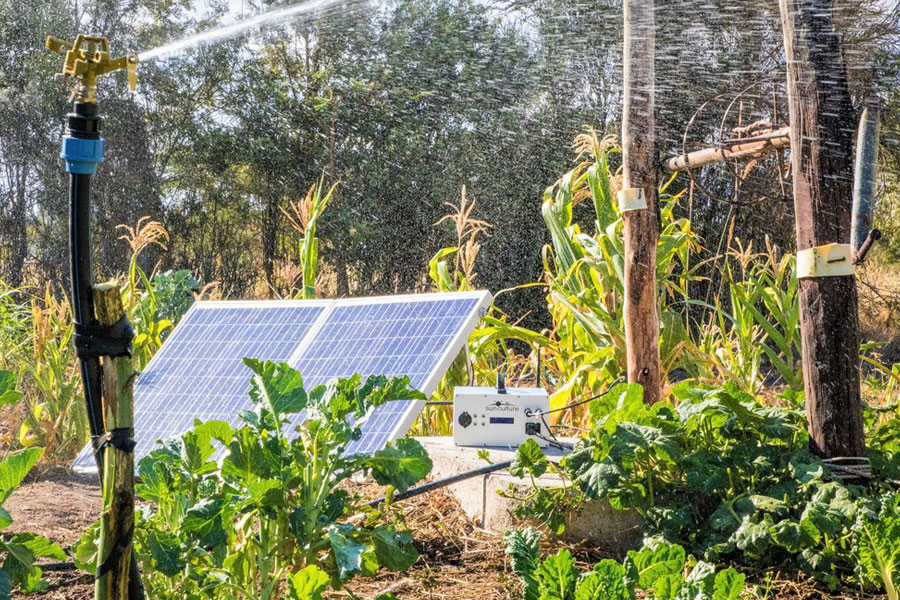
Fortune News | Apr 03,2023
The government has drafted a bill that will centralise the registration and administration of both imported and locally manufactured industrial chemicals.
Drafted jointly by the Ministry of Trade & Industry and the Enviroment Forest & Climate Change Commission, the regulation stems from a proclamation that was legislated last year and prepared by the Commission.
The industrial development of the country has necessitated the utilisation of more imported and locally produced chemicals, said Samuel Halala, director general for the Chemical & Construction Input Development Institute, which operates under the Ministry of Trade & Industry.
"The chemicals have to be well managed as they may cause irreparable damage to the environment and humans," said Samuel.
All of the importers, exporters, distributors or users of such chemical products are required to report the chemical information in types, quantities, expiry dates, damaging chemicals in hand to the Ministry of Trade & Industry.
Fourteen companies domestically produce industrial chemicals, while 465 companies are involved in importing, exporting, wholesaling and retailing of chemicals used for agricultural purposes and 1,199 companies for industrial purposes. Out of these, only four are exporters of agricultural chemicals and seven export chemicals for industrial purposes.
Data of imported, manufactured, repackaged, sold, distributed and used industrial chemicals from these companies will be stored in a centralised database system, to be established at the Ministry.
Presently, the production, importation, exportation, transportation, storage and use of industrial chemicals have not been appropriately regulated, according to Ayele Hegena (PhD), director general for Policy Law, Standard Research & Development at the commission.
Before the new regulation, chemicals were regulated separately - the Ministry of Agriculture oversaw fertilisers, while medicine was monitored by the Federal Food & Drug Authority.
“Even though, there are regulations and proclamations that are issued for hazardous chemicals waste management," he said, "the country has no sustainable system to proactively control the adverse effects of chemicals released into the environment.”
The new regulation will also administer imported chemicals for research & development, education & training, agriculture and health.
Companies and institutions will also be required to notify the Ministry when chemicals are stolen or transferred to third parties within two days.
The bill, which is expected to be approved and become effective this fiscal year, will be sent to the Council of Minister for approval after discussion with stakeholders, according to Ayele.
Belay Woldeyes (Prof) of Addis Abeba University's School of Chemical & Bio-Engineering appreciates the draft regulation saying that the world is in the era of chemicals, as almost anything we use in our daily life is a product of chemicals.
“But it requires a lot of effort in public awareness on the utilisation of chemicals, as their effect is not immediate,” stressed the expert who has been engaged in industrial chemical issues for four decades.
They are necessities for our survival, but they also have dreadful effects if they are not adequately controlled during use and disposal, according to the expert.
PUBLISHED ON
Jan 19,2019 [ VOL
19 , NO
977]

Fortune News | Aug 24,2019

Radar | Jul 13,2019

Fortune News | Feb 08,2020

Fortune News | Sep 10,2022

Radar | Mar 05,2022

Dec 22 , 2024 . By TIZITA SHEWAFERAW
Charged with transforming colossal state-owned enterprises into modern and competitiv...

Aug 18 , 2024 . By AKSAH ITALO
Although predictable Yonas Zerihun's job in the ride-hailing service is not immune to...

Jul 28 , 2024 . By TIZITA SHEWAFERAW
Unhabitual, perhaps too many, Samuel Gebreyohannes, 38, used to occasionally enjoy a couple of beers at breakfast. However, he recently swit...

Jul 13 , 2024 . By AKSAH ITALO
Investors who rely on tractors, trucks, and field vehicles for commuting, transporting commodities, and f...

Oct 11 , 2025
Ladislas Farago, a roving Associated Press (AP) correspondent, arrived in Ethiopia in...

Oct 4 , 2025
Eyob Tekalegn (PhD) had been in the Governor's chair for only weeks when, on Septembe...

Sep 27 , 2025
Four years into an experiment with “shock therapy” in education, the national moo...

Sep 20 , 2025
Getachew Reda's return to the national stage was always going to stir attention. Once...